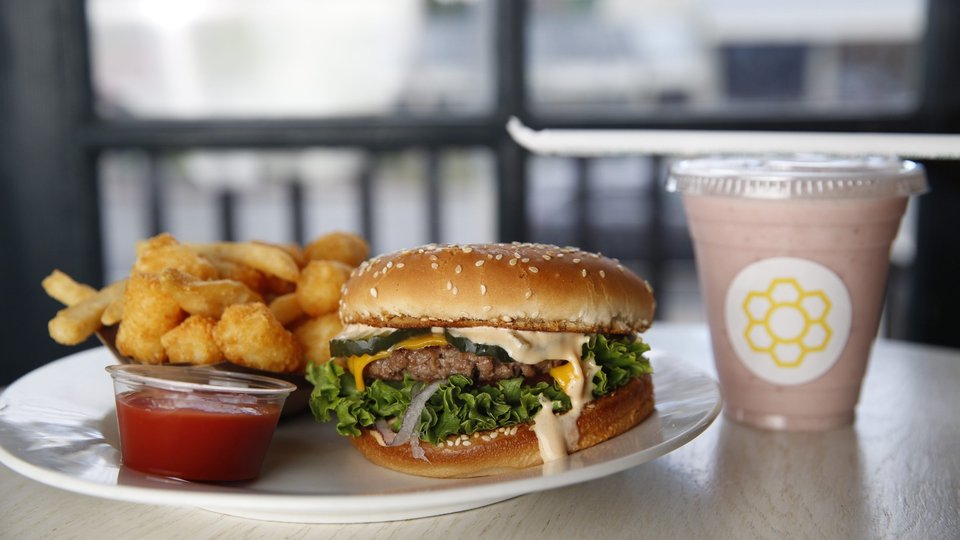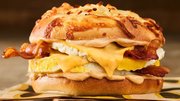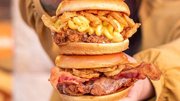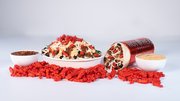Food & Beverage
Honeybee Burger: A plant-based burger with passion
Fast Casual spoke with Adam Weiss from Honeybee Burger and Virtuous Foods on plant-based products and embracing inclusivity in this emerging market.

April 22, 2021 by Pat Shea — Editor, NetworldMedia
Adam Weiss is a man impressed by bees.
"I can't help but appreciate their importance as pollinators and how they so naturally go about their business helping crops grow and beautifying our planet, " said the former Wall Street investor, who was so impressed by the insects that named his plant-based burger chain, Honeybee Burger, after them.
Like bees, plant-based foods have continually intrigued Weiss and inspired him 10 year ago to invest in Cafe Gratitude, a plant-based restaurant in Los Angeles. He also invested in several other food and plant-based businesses and formed Virtuous Foods in 2018.
"In 2018, I was approached by two Dutch entrepreneurs with an idea about growing and processing duckweed, or lemna, into a source of plant-based protein that could be used by the likes of Impossible foods and Beyond meat, which were just coming on to the scene," Weiss said. "I saw huge potential demand, and the early products were clearly gamechangers. That's what gave me the idea to build a brand around next-generation plant-based burgers."
Later that year, Weiss opened Honeybee Burger in Los Angeles as a plant-based burger restaurant with a mission to, "Save the planet by making plant-based food more desirable, accessible and available everywhere consumers think about eating."
When Weiss decided to launch Honeybee Burger, he made a conscious decision to use humor to help customers learn and accept a plant-based foods.
"Humor has always been a great way to build bridges, teach and inform — and it beats scolding and negativity," Weiss said. "We use expressions like 'No Cow, All Wow', 'PBAF' with the PB standing for plant based, and 'Approved by 100% of cows' in our stores, collateral, and website and in social media. And our messaging, which appears on posters in our store, on our social media and our website is about how our customers can make an impact on the planet with every bite, by saving water, reducing their carbon footprint, and preserving precious farmland," Weiss said .
Inclusivity matters
Although humor made an impact on customers, Weiss also thought it was important to be non-judgmental when it came to other types of eating such as vegan or vegetarian.
"Old-school veganism can be very exclusive, preachy, and frankly, not very welcoming to flexitarians or meat-eaters of any kind," said Weiss. "I knew that for us to make an impact, we'd need to reach the 97% of people who do not identify as strict vegans, but nevertheless may be interested in eating plant-based alternatives to traditional foods. So, I decided to embrace inclusivity, where we welcome people regardless of what they eat when they aren't at Honeybee."
And along with being an inclusive brand, Weiss worked hard to make the brand approachable as well.
"We wear our mission on our sleeve, and we are unapologetic about it. This is rare in the QSR world. Plus, our specific mission is rare anywhere in the dining segment," said Weiss. "We are innovating on veganism, bringing it to a 2.0 version by embracing the best new products on the market, many of which our guests have never tried, and some of which we are the first QSR to launch with. We embrace the decision makers of tomorrow: women, young families, and kids, which are not typically addressed in vegan/plant-based dining."
Quality, taste and consistency
As the Honeybee Burger brand launched, Weiss kept a close eye not just on quality, taste and consistency but also on price.
"The greatest challenge in promoting plant-based products is the price. The ingredients are expensive and as a result our prices are higher than we'd like and higher than traditional fast food, especially burgers," said Weiss, who knew it was a winner but went directly to the horse's mouth, or in this case, the customers.' "We have a very active customer text line that allows us contemporaneous communication with customers, who might be experiencing order or food issues that we can address immediately.
The company also vets each new menu item with multiple metrics and uses Yelp and other review channels to gain customer feedback to help improve products and customer experience.
"Our brand resonates with people, which makes it more than just about the food; many of our investors are passionate about animal welfare, sustainability, and making vegan food more attractive and accessible everywhere for environmental or personal reasons," Weiss said. "We already had a strong following on our channels and most importantly, many of our investors are our current customers, who love our food and what we stand for, and loved the opportunity to be part of the business. Plus, we cannot understate the trend to plant-based food is growing, and there are not a lot of ways to invest in it directly."
Besides the original Honeybee Burger, the company has a virtual location in West Los Angeles, and is opening a flagship store in a few months in L.A.'s Hancock Park. It's also negotiating three letters of intent for other locations.
"Our plans are laid out at Start Engine and include more brick-and-mortar locations throughout LA, virtual kitchens to expand our delivery radius, and then expansion through corporate stores and franchises," Weiss said.
One of the ways Weiss has been able to meet the customer demand is through ghost kitchens. To Weiss, a ghost kitchen gives the brand the flexibility needed to further grow.
"It allows us to reach a delivery market in an area where brick and mortar locations may be unavailable or too expensive to develop," he said. "Cloud kitchens are also more cost effective to launch — $50,000 versus $150,000 — than brick and mortar, and much faster to go on line happening generally in six weeks as opposed to six months.
The chain has raised over $1 million from over 1,300 investors just six weeks into its campaign.
Looking to the future, Weiss aims to open four to six stores within 12 months and 12-20 stores operating within 24-36 months.
"The incredible feeling of making people happy, opening non-vegan's eyes to plant-based food, enlightening the next generation of decision makers about the positive impact they can have through the simple pleasure of eating a burger," Weiss said. "Another plus is creating a brand in a space where basically everything has been done before."












